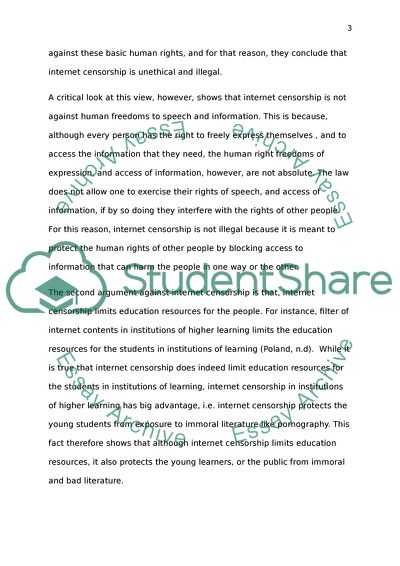Cite this document
(Whether or Not the Internet Should Be Censured Coursework Example | Topics and Well Written Essays - 3750 words, n.d.)
Whether or Not the Internet Should Be Censured Coursework Example | Topics and Well Written Essays - 3750 words. https://studentshare.org/information-technology/1820185-ethics-and-e-privacy
Whether or Not the Internet Should Be Censured Coursework Example | Topics and Well Written Essays - 3750 words. https://studentshare.org/information-technology/1820185-ethics-and-e-privacy
(Whether or Not the Internet Should Be Censured Coursework Example | Topics and Well Written Essays - 3750 Words)
Whether or Not the Internet Should Be Censured Coursework Example | Topics and Well Written Essays - 3750 Words. https://studentshare.org/information-technology/1820185-ethics-and-e-privacy.
Whether or Not the Internet Should Be Censured Coursework Example | Topics and Well Written Essays - 3750 Words. https://studentshare.org/information-technology/1820185-ethics-and-e-privacy.
“Whether or Not the Internet Should Be Censured Coursework Example | Topics and Well Written Essays - 3750 Words”. https://studentshare.org/information-technology/1820185-ethics-and-e-privacy.


